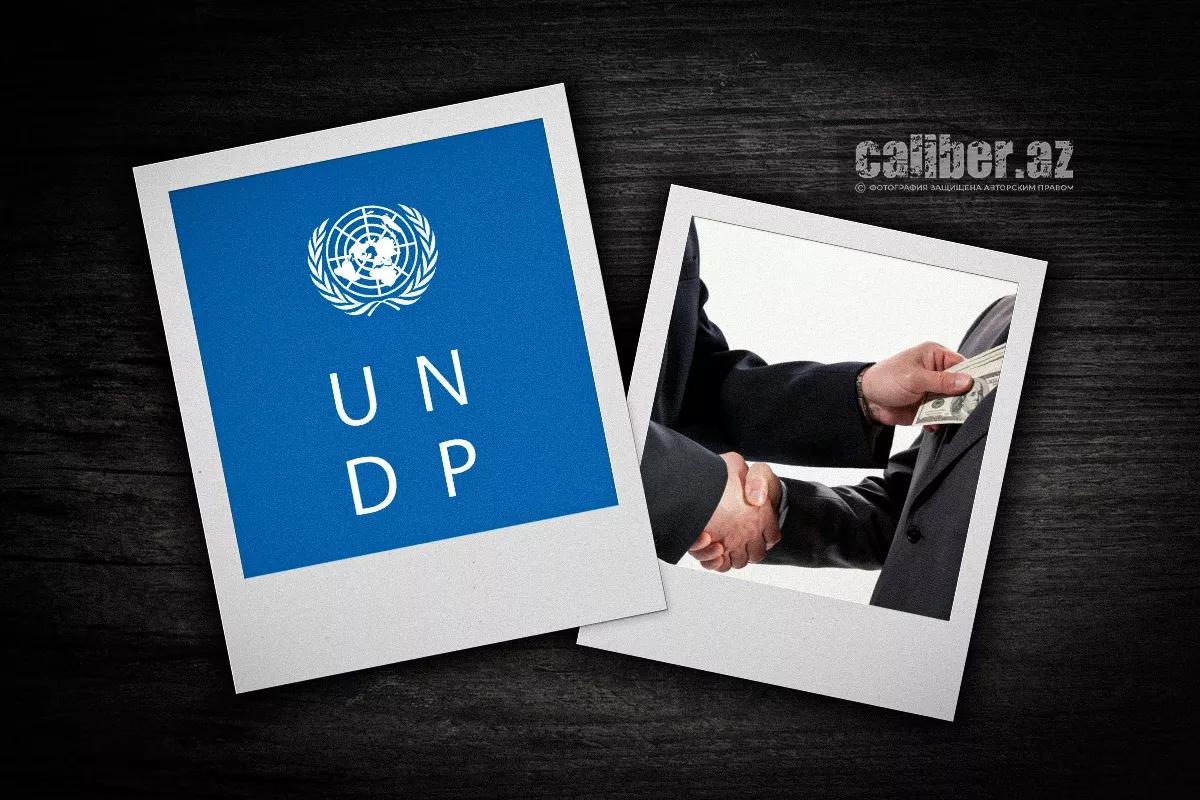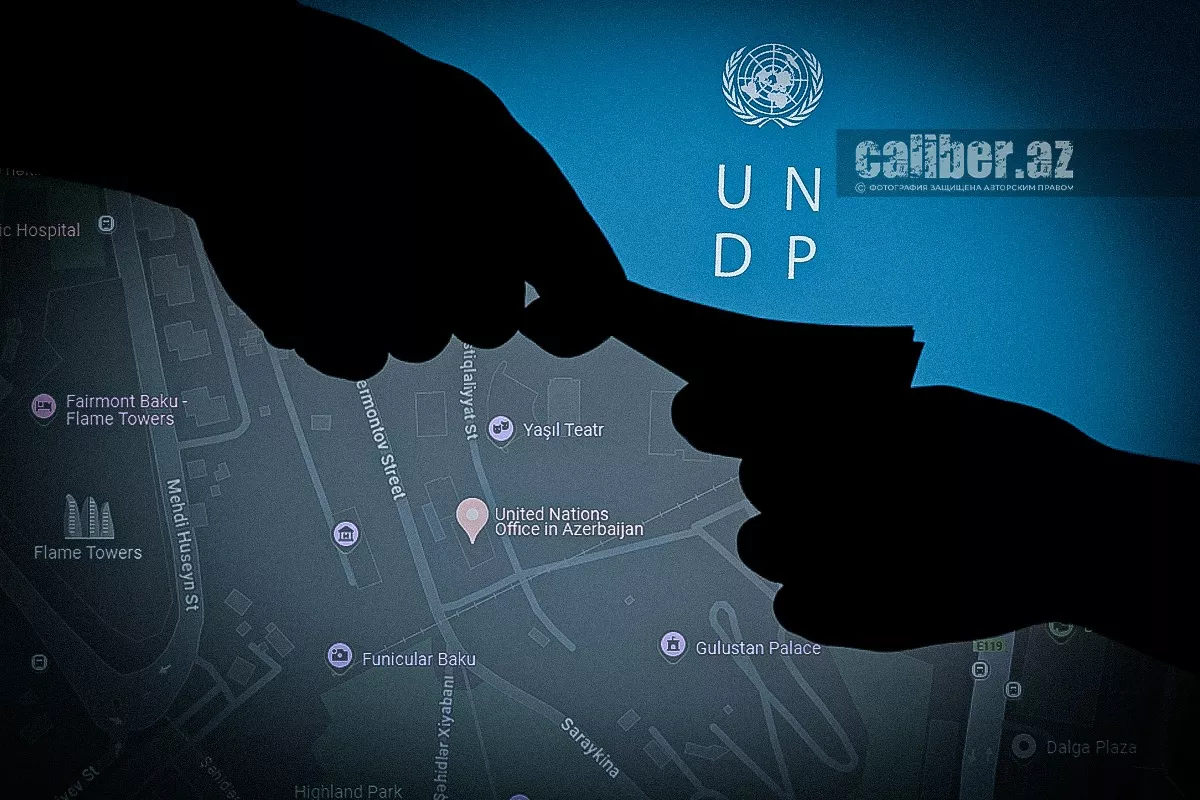UNDP’s abysmal record in Azerbaijan A betrayal of trust and accountability
The United Nations Development Programme (UNDP), renowned globally for its development projects aimed at fostering sustainable growth, finds itself embroiled in a significant controversy following the findings of an internal audit of its Azerbaijan Representation. Conducted by the UNDP Office of Audit and Investigations (OAI) in early 2024, the audit has exposed a series of alarming practices within the organization’s operations in Azerbaijan, raising serious questions about corruption, governance failures, and the lack of transparency in its dealings. With a history of donor funding and international support, the UNDP’s actions in Azerbaijan could have far-reaching implications, both for the credibility of the organization and the trust it holds with donors.
Breach of trust and transparency
One of the most damning findings in the audit is the UNDP Azerbaijan Representation's management of grants. In 2023, a staggering $754,570 was disbursed to 23 local non-governmental organizations (NGOs) that lacked proper state registration. This breach of Azerbaijan’s national laws, which require the registration of all NGOs and service contracts receiving international funding, reveals a troubling disregard for legal and ethical standards.
Furthermore, the organization allocated $2.6 million in grants ($1.3 million each) under the EU Capacity Building of Civil Society Organizations (CSO) initiative and the Enhancing Mine Action Programme. However, the audit report fails to disclose the recipients of these grants or clarify how the funds were utilized, leaving the allocation shrouded in mystery.

By failing to comply with national laws, the UNDP not only violated legal norms but also opened the door to potential corruption and misappropriation of resources. The audit document does not disclose the names of the NGOs receiving grants or the LLCs registered in the names of the employees of these NGOs, raising questions about which organizations are involved in these legal violations. This lack of disclosure starkly contradicts UNDP’s declared principles of accountability and openness. The audit itself concluded that these practices pose a "reputational risk" to the UNDP.
Moreover, the situation is made more troubling by the report’s revelation: “The Office directly contracted either the limited liability companies established by the CSOs or individuals employed by the CSOs, transferring the awarded grant funds to these companies, which the CSOs then used to implement the grant activities.”
This arrangement highlights how the grants were funnelled through employees of these NGOs or LLCs registered under their names, resulting in a complex web of potential conflicts of interest that further undermines the integrity of the grant allocation process.
Not only does this undermine the legitimacy of these transactions, but it raises serious ethical concerns about the organization’s approach to development funding. Despite the audit's recommendations for UNDP to adopt more transparent and accountable procedures, the organization’s ongoing refusal to disclose vital information about its partners and recipients undermines any claims to reform.
Procurement mismanagement
The audit also uncovered a pattern of mismanagement in the procurement process, most notably the unjustified use of direct contracting. In total, three purchase orders worth $177,000 were awarded without proper justification or adherence to UNDP’s procurement guidelines. This included an expenditure of $92,000 for training programs designed for vulnerable women affected by war and security personnel on explosive ordnance disposal. However, the audit found no sufficient evidence to justify these contracts, which, according to UNDP’s own procurement policies, should have gone through a competitive bidding process.

Such actions highlight not only a failure to adhere to internal policies but also a lack of due diligence when it comes to spending donor funds. By bypassing the competitive market, UNDP failed to ensure that it was getting the best value for its expenditures, a fundamental principle in any development programme. More troubling still was the direct hiring of a former staff member who had resigned, being contracted for consultancy services worth $25,000—a clear example of a conflict of interest that further exemplifies the lack of proper oversight within the organization.
Flawed hiring practices
The audit further identified multiple violations related to the misuse of individual contract modalities. These irregularities included the hiring of a former employee to oversee a project on which they had previously provided oversight, as well as extending an individual contract to an individual contractor without the necessary qualifications for the task at hand. Moreover, contractors were employed for continuous functions that should have been covered under a Professional Services Agreement or Temporary Appointment, highlighting a disturbing lack of strategic planning and oversight.
Such practices, which violate UNDP’s own procurement policies, increase the risk of poor-quality deliverables and financial inefficiencies. The improper use of individual contracts, in this case, is not merely an administrative oversight but a significant breach of ethical standards. These cases exemplify how a lack of accountability within UNDP Azerbaijan has resulted in subpar execution of projects, ultimately undermining the very principles the organization seeks to uphold.
Governance failures
The audit also paints a troubling picture of governance at UNDP Azerbaijan. The absence of key personnel, including a procurement lead, finance lead, and human resources lead, has left the operational units reliant on the overburdened Operations Manager. This vacuum in leadership has severely hampered the office’s ability to meet its objectives and mobilize resources effectively.
Compounding these issues is the fact that critical positions on the programme side, including those of the Deputy Resident Representative and Environment Head, were unfilled, further exacerbating the operational inefficiencies within the Representation. The lack of strategic direction from leadership has not only led to delays in project implementation but has also contributed to the underperformance of several major development initiatives.
Additionally, the audit revealed a significant failure in monitoring and evaluating the impact of funded projects. Out of eight sampled projects, three accounting for $10.3 million in expenditures—failed to report results against their planned targets. This failure to ensure proper oversight is not only a major governance issue but also speaks to the inherent inefficiencies that plague the organization’s operations in Azerbaijan.
Lack of accountability
One of the most disturbing aspects of the 2024 audit is the fact that many of the issues flagged in previous audits remain unresolved. A similar set of governance and procurement failures was highlighted in the 2019 audit, but despite promises of corrective action, UNDP Azerbaijan has failed to address these concerns. The persistence of these issues—four years later—indicates a troubling lack of accountability and commitment to reform within the organization. Without a genuine commitment to transparency and reform, the UNDP risks further erosion of its reputation and its ability to foster trust with both donors and the local population.
It would be interesting to see how the main donor organizations view the legal violations committed by UNDP Azerbaijan. Are these issues a cause for concern for them? Such legal breaches should have undoubtedly drawn their attention much earlier.

Furthermore, the UNDP’s actions seem to disregard Azerbaijan’s territorial integrity and sovereignty. A striking example of this was the refusal of the UNDP Azerbaijan representative to visit Shusha, a city in Azerbaijan’s liberated territories, during a key international conference in 2022. Notably, UNDP was the only international organization to decline participation in this significant event, further amplifying concerns about its stance.
Furthermore, the UNDP’s actions appear to show a disregard for Azerbaijan’s territorial integrity and sovereignty. The deliberate avoidance of an event focusing on the reconstruction of these territories sends a message that undermines Azerbaijan’s sovereignty and the importance of its territorial integrity.
The organization has been involved in establishing Women's Resource Centres that operate outside of government oversight. According to information obtained by Caliber.Az, in 2024, one such centre in Baku denied entry to government officials, citing a lack of authorization from UNDP itself. This has sparked concerns that the organization may be indirectly supporting activities that are at odds with the national government’s interests.
Conclusion
The findings of the 2024 audit present an unequivocal case of systemic mismanagement, corruption, and a lack of transparency within UNDP’s Azerbaijan Representation. The organization’s failure to adhere to both its own policies and the legal frameworks of the host country raises critical questions about its operational integrity. For an organization that prides itself on promoting good governance and sustainable development, these revelations are nothing short of disastrous.
Given these legal violations, it is understandable why the Azerbaijani government has legitimate concerns regarding foreign grants. On January 7, in an interview with local TV channels, President Ilham Aliyev of Azerbaijan also addressed the issue, emphasizing the negative impact of foreign-funded programs on the country's sovereignty and integrity. He revealed that Azerbaijan had curtailed all programs with the EU, including twinning initiatives and grants, many of which were associated with creating platforms aimed at influencing Azerbaijani youth.
“All twinning programs have been curtailed, all EU grants have been frozen, those that were legal. There are partly illegal ones, money is brought here across the border, mainly through Georgia, again through the structures that are handy to Soros, but this is no longer the case, and our law enforcement agencies can track all that. As for legal grants – we refused, because they were aimed at creating their own platforms on our territory with far-reaching plans, mainly focused on young people,” the president said.
Interestingly, despite the publication of the audit report in August 2024, it remains unclear whether UNDP has taken any legal action regarding the violations outlined. In this context, Caliber.Az intends to submit a formal request to the UNDP Azerbaijan office to obtain information about the 23 NGOs that received grants.








